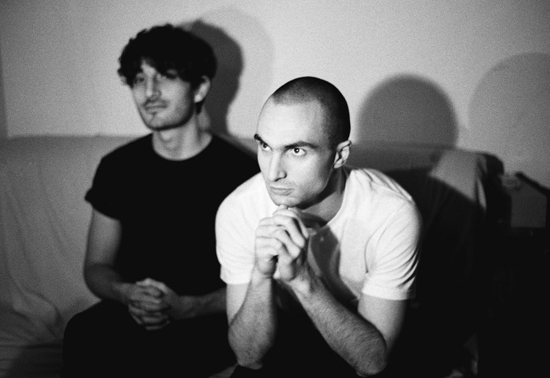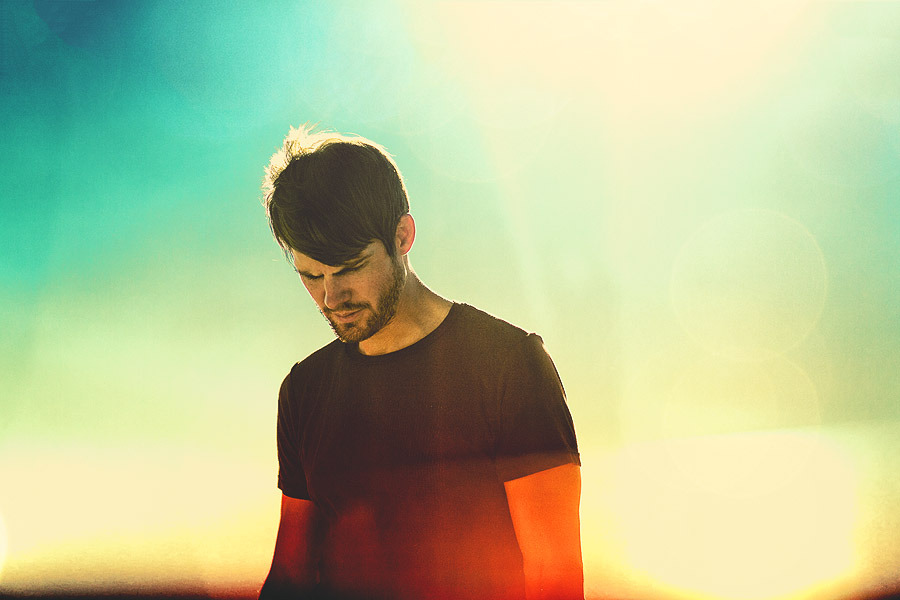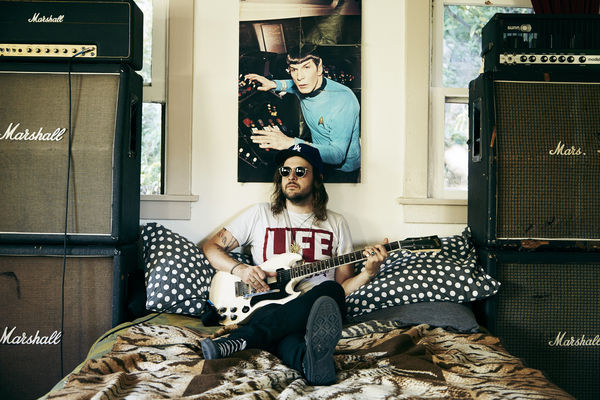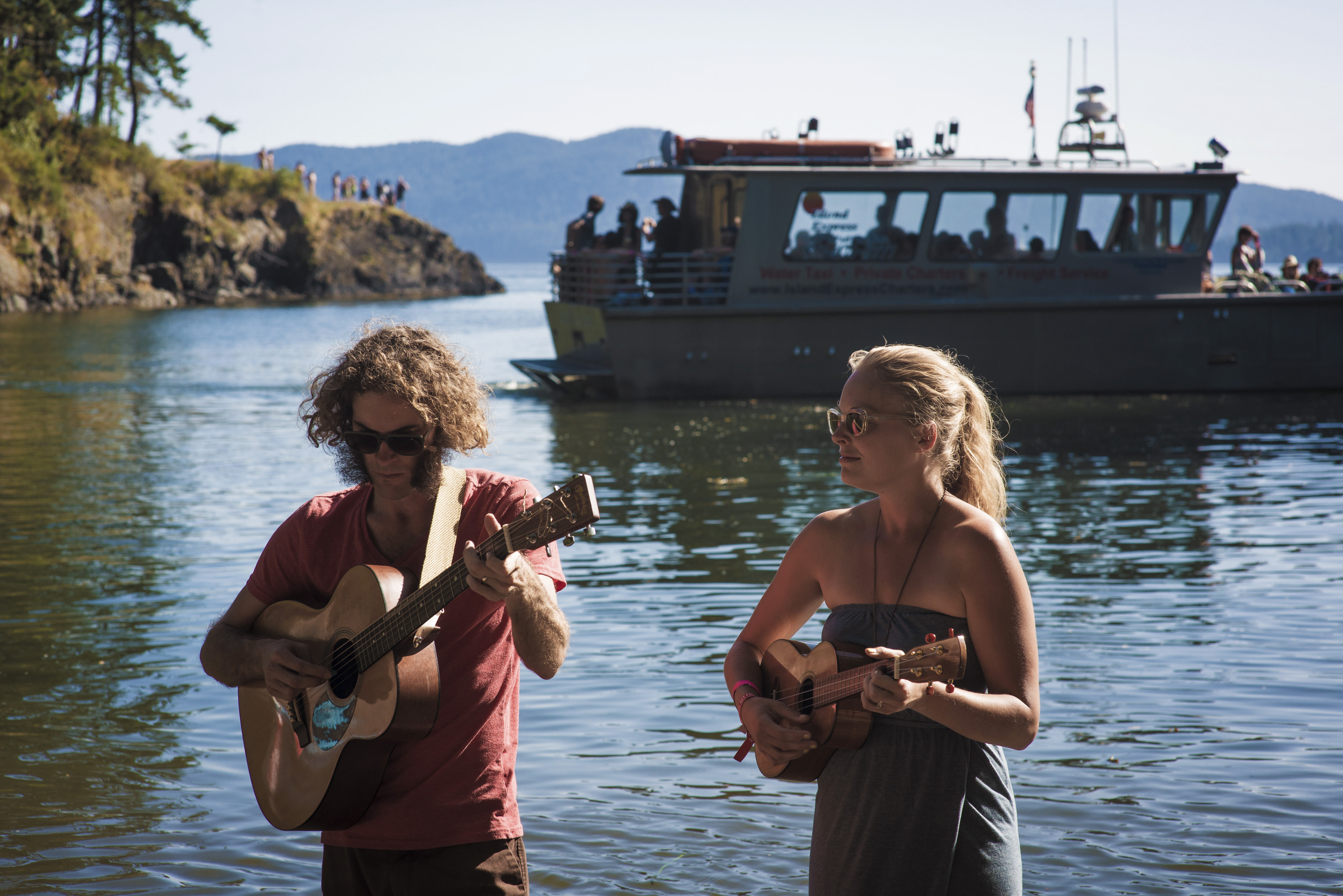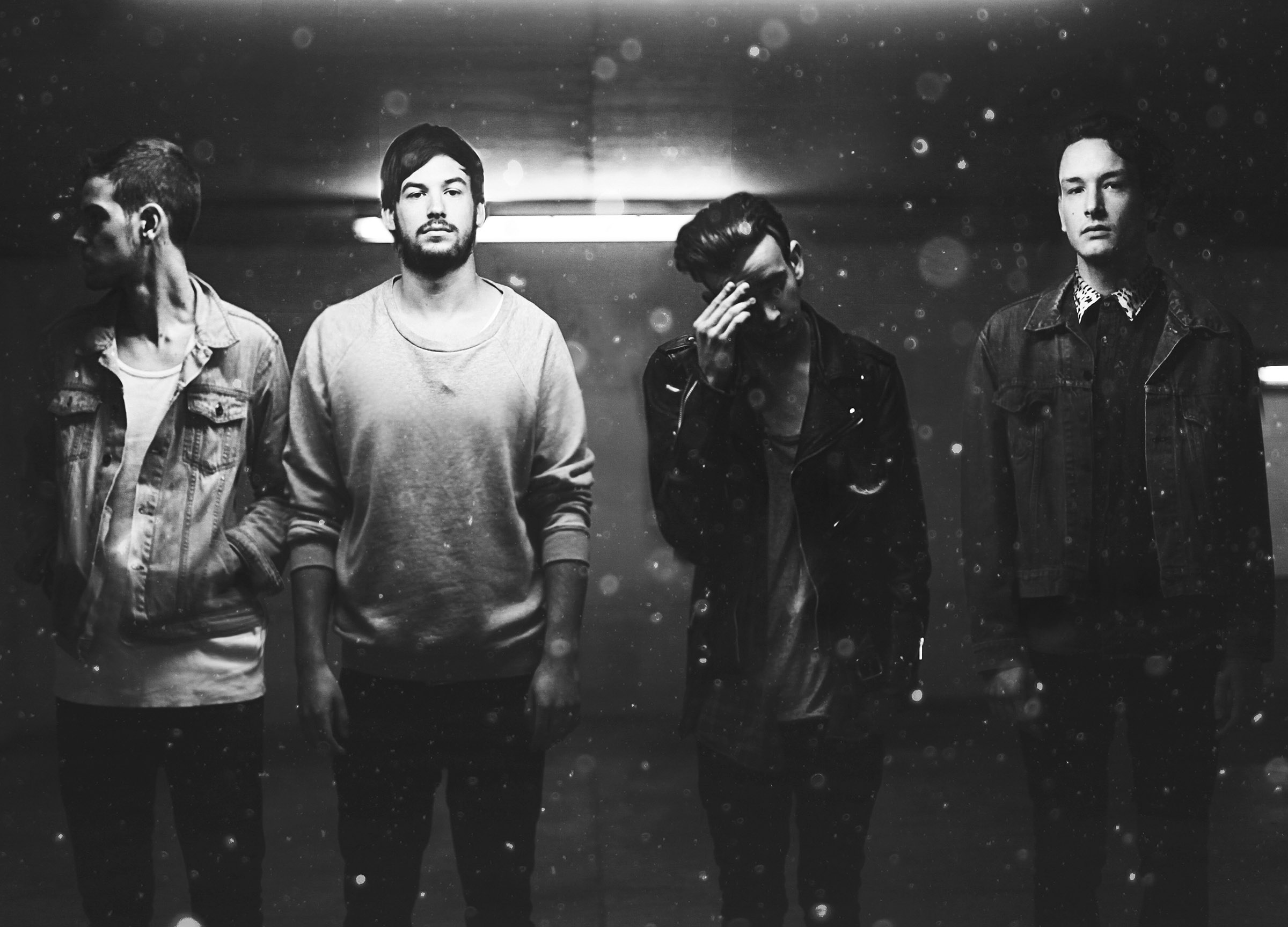One listen to Montreal-based electronic duo Majical Cloudz and it’s immediately apparent just how well Devon Welsh and Matthew Otto work together. At no point in their songs does Otto’s minimalistic synth outshine Welsh’s powerful vocals, and vice versa. Both pieces of the puzzle always seem to find a way to fit together and make the picture, in this case, their latest album Impersonator, complete. We talked with Welsh about tour firsts, playing different venues, and the outbursts of energy he sees during shows. Majical Cloudz play with Moon King at Barboza tonight (8/20).
In the show recaps you post on the band’s website, you mention some firsts from this tour. Did you go into this tour wanting to cross those firsts off the list? We never went into it with any ideas. It naturally happens when you’re in a new circumstance, which for us is doing our first headlining tour. There’s a number of things that happen that never would’ve happened on a support tour. It naturally comes out of the different responsibilities and freedoms you have as a band on their own tour.
Has anything unexpected happened now that you’re headlining? In general, there’s more variables to how things can go. When you’re doing a first headlining tour, you are constantly faced with circumstances that are novel to you. This is the first time where we will have gone through most of North America and played shows where people are interested in seeing us.
You talk about the crowds in those recaps. One show, someone asked you for the set list for the first time. At another, people were talking so you walked offstage and played behind the venue. I walked offstage and went behind a door. Not everyone was talking but when even a few people are talking, it feels like the whole crowd is not interested in what you’re doing. I chose to do something that was unusual in order to get people’s attention and to make things more fun for myself because it’s not that fun to play to people that aren’t paying attention.
That sounds more memorable for the people who were really there to see you. Some people followed me into the backroom, and we hung out there. We were focused on what we were doing and then after the song, everyone in the back came out and we played our last song. It was a lot of fun.
You wrote that playing the Osheaga festival made the songs feel new in some ways. How so? The circumstances of playing at a festival like that are so distinct from the circumstances you encounter on tour playing small, dark spaces. Playing in the early afternoon outside to people that are at a pretty large distance from us made what we were doing completely different. It made different aspects of the songs standout to me. When you take something and put it in a totally new context, it can feel sometimes unfamiliar in a really good way. It didn’t feel like a stretch necessarily for us to be playing on that stage, but it definitely felt like a distinct performance to do it in a different space.
In your press bio, you say
Impersonator
isn’t meant to energize, it’s meant to be like a cocoon. Are your crowds energetic at all? One theme of the tour so far has been people not necessarily dancing but energetically moving in strange ways. Last night there was a bunch of people onstage, and I was singing at one guy and he was singing back to me and we were mimicking each other’s body movements in this weird way. There’s definitely been a lot of energy at the shows so far but it’s not energy that’s released in the typical way. There are definitely outbursts that happen.
It’s like the music gets into someone and they just have to get it out. What we try to do at shows is disrupt the expectations of what a show feels like. Instead of offering one specific emotional state for people to get into that is continuous throughout the whole set, it’s a lot more varied. For that reason, there’s not an easy way to release energy during the set. Because the set is varied and unusual in its energy, the reactions of people seeing it are also varied and unusual.
Sounds like another first. As the headlining band, you guys now have the opportunity to move the show in certain ways. We have the opportunity to set the tone for the evening, how we’d like people to relate to our music. That’s one of the big benefits of being the headliner is that you get to present yourself exactly how you want to be perceived.
